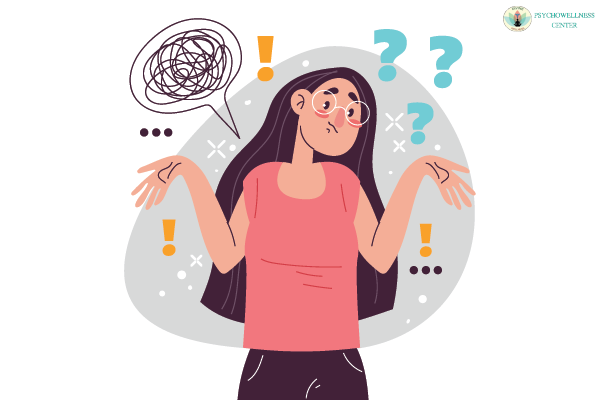Best Child Psychologist in Dwarka Sector 10 Dwarka Delhi

Social anxiety is a common challenge that many children face, affecting their ability to interact with peers, express themselves, and participate in social activities. While occasional shyness is normal, persistent anxiety in social settings can impact a child’s overall well-being, leading to stress, low self-esteem, and even depression.
This blog explores effective strategies and various therapeutic approaches to help children manage social anxiety, emphasising the importance of early intervention and psychotherapy in building emotional resilience and self-confidence.
What is Social Anxiety in Children?
Social anxiety is characterised by an intense fear of social interactions and the possibility of judgment or rejection. This fear often causes children to avoid social settings, resulting in feelings of isolation and increased stress.
Common Signs of Social Anxiety in Kids:
- Reluctance or refusal to speak in class or participate in group activities.
- Avoiding eye contact or displaying physical symptoms like trembling, sweating, or nausea in social situations.
- Difficulty making or maintaining friendships due to fear of rejection.
- Overanalysing interactions and worrying excessively about others' opinions.
- Frequent complaints of stomachaches or headaches before social events.
If these signs persist and interfere with daily functioning, it’s important to seek professional support from a psychotherapist or counsellor.
Strategies to Help Kids Overcome Social Anxiety
1. Foster Open Communication
Create an environment where your child feels safe to share their fears and emotions without fear of judgment. Engaging in active listening and acknowledging their emotions can provide a sense of support and understanding.
2. Teach Relaxation Techniques
Simple relaxation methods can help children manage panic attacks and reduce their anxiety. Techniques like deep breathing, progressive muscle relaxation, or visualisation exercises can calm their minds before or during social situations.
3. Gradual Exposure to Social Situations
Gradual exposure, or systematic desensitisation, is a highly effective way to reduce social anxiety. Start with low-pressure scenarios, such as playdates with close friends, and gradually introduce them to larger or unfamiliar social gatherings.
4. Encourage Positive Self-Talk
Negative thoughts often fuel social anxiety. Teach your child to replace self-doubt with affirmations like:
"It’s okay to make mistakes; everyone does."
"I have the confidence and skills to handle this situation effectively."
This shift in mindset builds self-esteem and fosters a more positive outlook.
5. Practice Role-Playing
Role-playing common social scenarios, such as starting a conversation, introducing themselves, or handling teasing, equips children with practical skills to navigate real-life situations confidently.
6. Celebrate Small Wins
Acknowledge and reward your child’s efforts, no matter how minor they seem. Celebrating their progress—like raising their hand in class or making a new friend—builds self-confidence and encourages them to face new challenges.
Therapeutic Approaches for Social Anxiety in Children
While at-home strategies are essential, professional therapy can address the deeper causes of social anxiety and provide children with the tools they need to thrive. Here are the most effective therapies used to help children manage social anxiety:
1. Cognitive Behavioral Therapy (CBT)
CBT is one of the most widely used approaches for social anxiety. It helps children identify and challenge negative thought patterns while developing healthier coping mechanisms. Therapists work with children to replace irrational fears with more realistic and positive beliefs.
2. Play Therapy
Play therapy is especially effective for younger children who struggle to articulate their feelings. Through structured play activities, therapists create a safe space for children to express their emotions, build problem-solving skills, and overcome their fears.
3. Exposure Therapy
This therapy focuses on gradually exposing children to anxiety-provoking social situations in a controlled and supportive environment. Over time, repeated exposure reduces the fear associated with these scenarios and helps children feel more comfortable.
4. Art Therapy
Art therapy encourages children to express their feelings through creative outlets like drawing, painting, or sculpting. This nonverbal approach helps children process their stress, reduce anxiety, and develop emotional resilience.
5. Mindfulness-Based Therapy
Mindfulness techniques teach children to focus on the present moment, reducing their tendency to overthink or worry about social interactions. Activities like guided meditation, deep breathing, and body scans help regulate their emotions and alleviate panic attacks.
6. Social Skills Training
This therapy focuses on teaching children specific interpersonal skills, such as initiating conversations, maintaining eye contact, and understanding nonverbal cues. These practical tools empower children to engage confidently in social situations.
7. Family Therapy
Family dynamics often play a significant role in a child’s emotional well-being. Family therapy helps parents and siblings understand the child’s anxiety and guides how to create a supportive home environment.
The Role of Psychotherapists
At Psychowellness Center, R K Suri, Utkarsh Yadav, Sakshi Dhankhar, and Tanu Sangwan, therapists specialise in helping children navigate anxiety, stress, and self-esteem issues. Each therapist brings unique expertise to support children and families:
Psychowellness Center: A trusted mental health clinic offering comprehensive therapy for children facing social and emotional challenges.
- R K Suri: Known for his compassionate approach, Dr. Suri focuses on building self-confidence and resilience in children.
- Utkarsh Yadav: A specialist in child and adolescent therapy, Utkarsh helps children address trauma, develop coping skills, and improve social interactions.
- Sakshi Dhankhar: With a focus on holistic well-being, Sakshi empowers children to overcome stress, enhance their self-esteem, and embrace positive change.
- Tanu Sangwan: A dedicated child psychologist who combines traditional therapies with innovative techniques to address anxiety and promote emotional growth.
These professionals understand the unique challenges children face and provide personalised care to help them thrive.
If your child’s anxiety persists, consult a therapist to explore effective interventions.
Conclusion
Helping children navigate social anxiety is a gradual process that requires patience, empathy, and proactive strategies. By creating a supportive environment, encouraging positive self-talk, and exploring therapeutic interventions, parents can empower their children to build self-esteem and thrive socially.
Professional psychotherapy plays a vital role in addressing social anxiety. Therapists at Psychowellness Center offer expert guidance tailored to each child’s needs, ensuring they gain the tools and confidence to overcome their fears.
Contributed by Ms. Sangeeta Pal, Counselling Psychologist
References
- American Psychological Association (APA). (2023). Understanding Childhood Anxiety Disorders.
- Kearney, C. A. (2019). Helping Children with Anxiety.
- Kabat-Zinn, J. (1990). Full Catastrophe Living: Using Mindfulness to Face Stress and Anxiety.




SHARE